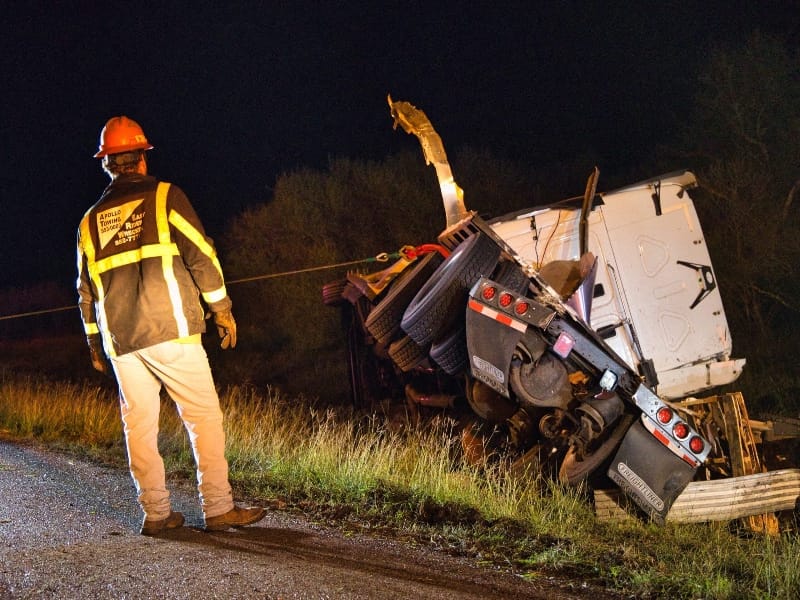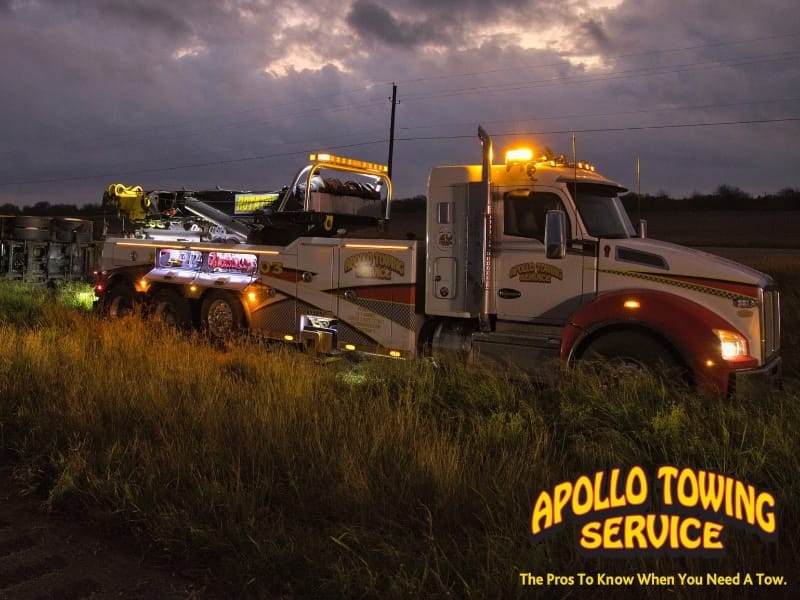When the Lights Go Out, the Hazards Go Up
Nighttime towing isn’t just daytime with less sunlight. Everything changes after dark: visibility, traffic patterns, even the way people behave behind the wheel. We’ve spent enough late nights on Portland’s roads to know that emergency calls don’t wait for daylight. Whether it’s a breakdown on I-37 or a slide-off close to Odem, night calls demand a different kind of readiness. Things move slower at night, but risks move faster. Drunk driving incidents spike after sunset. So do distractions. We’ve seen everything from drivers texting to deer darting into traffic. For us, Portland emergency towing at night means being alert for the things that most people don’t see until it’s too late.

Visibility Is Everything
Towing in the dark is like working in a tunnel. Headlights help, but they only go so far. Our drivers rely on reflective gear, extra lighting, and instinct built from years of experience.
It’s not just about seeing, it’s about being seen. We light up our trucks like Christmas trees so oncoming traffic knows we’re there. The shoulder of a dark road is no place to be invisible.
Plus, not all streets are lit equally. In some neighborhoods or stretches of rural Portland, there are no streetlights at all. We have to judge terrain, traffic flow, and angles by spotlight and shadow. That takes a steady hand and a sharp eye.
Slower Traffic, Faster Decisions
You’d think things would be calmer after midnight. Fewer cars, less congestion. But the quiet can be deceiving. Drivers are more unpredictable at night. Fatigue and impairment play a role. We often see cars veering or failing to slow down near an active tow.
That’s why we set up quickly and stay ready to move. Here’s what we do differently after dark:
- Use extra flares or warning triangles to mark off danger zones
- Keep constant communication between driver and dispatcher
- Approach every stopped car assuming the driver might be drowsy or distracted
- Rely on radios and flashlights more than hand signals or visual cues
Equipment Hits Different After Dark
Operating equipment at night adds layers of challenge. A winch line might blend into the shadows. A loose cable could go unnoticed. Even hooking up a car feels different under a flashlight beam.
That’s why our Portland emergency towing crew takes their time double-checking every connection. Safety checks are non-negotiable. One skipped step in the dark could mean a roadside hazard or damage to a customer’s vehicle.
We also deal with more weather-related problems at night. Portland fog rolls in, or black ice starts to form on elevated roads. These are things you can’t always see, but we know they’re out there.

Apollo Towing and Your Portland Emergency Towing Needs
At Apollo Towing, Portland emergency towing after dark is part of the job. But it’s never routine. We take each Portland emergency towing night call seriously because we know the risks are different, and the stakes can be higher. Our team is trained to handle roadside recovery in any lighting, weather, or traffic condition.
If you’re dealing with a midnight breakdown or a roadside emergency, you need Portland emergency towing that shows up prepared. Here’s how we help:
- 24/7 availability so you’re never waiting long
- Experienced operators who know Portland inside and out
- High-visibility setups for added roadside safety
- Careful, damage-free towing on every call
- Calm, clear support in high-stress situations
When things go wrong after dark, you can count on Apollo Towing for reliable Portland emergency towing every time. Give us a call anytime you’re stuck, stranded, or just unsure what to do next. We’ll handle the night so you can get back to the day.
FAQ
What should I do if my car breaks down at night?
Stay in your vehicle with the hazard lights on, move off the road if it’s safe, and call for help immediately. Keep your doors locked and stay visible to passing vehicles.
How do tow truck drivers stay safe working overnight?
They use reflective gear, high-visibility lights, and maintain constant communication with dispatch to manage unpredictable traffic and limited visibility.
Is it more dangerous to drive at night?
Yes. There’s a higher risk of accidents due to reduced visibility, fatigue, and impaired drivers. Emergency response times may also vary depending on road conditions.
Do towing companies operate 24 hours a day?
Many do. Round-the-clock towing services are common, especially for emergency roadside situations that can happen outside of business hours.
What kind of lights do tow trucks use at night?
Tow trucks are equipped with flashing amber lights, spotlights, and sometimes additional flood lighting to alert traffic and illuminate the area for safer operations.
Can a vehicle be towed in total darkness?
Yes. With proper lighting, trained drivers, and equipment designed for low-light recovery, vehicles can be safely towed even in pitch-black conditions.

